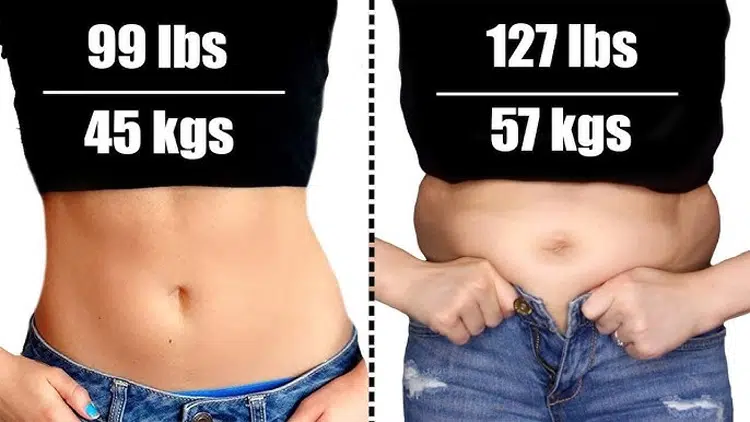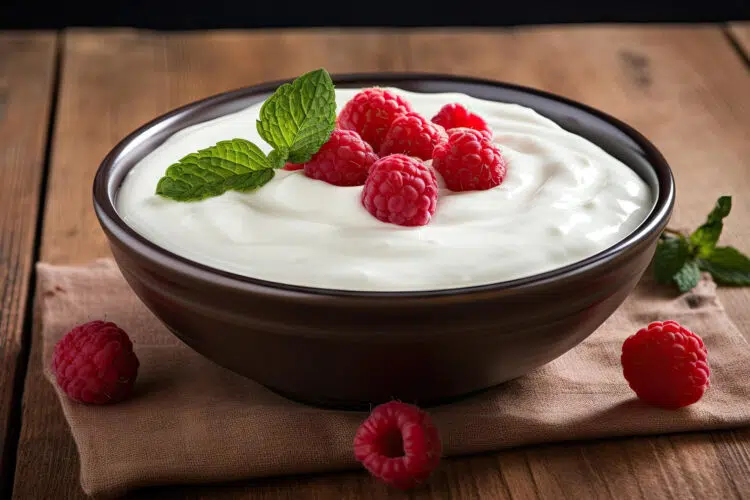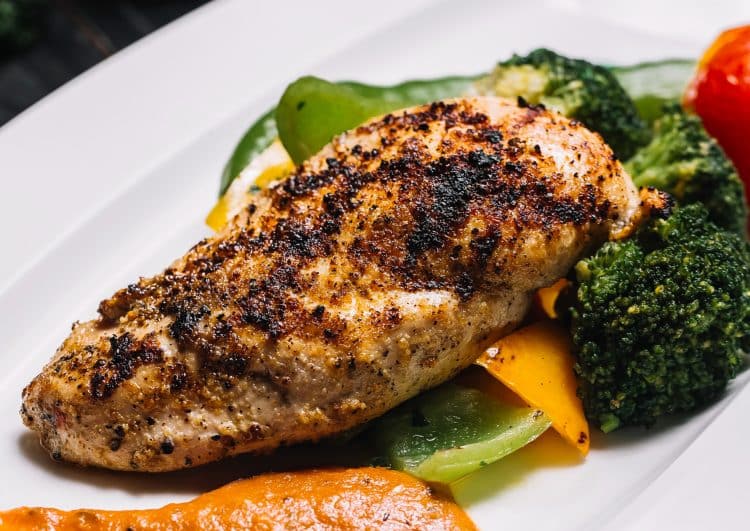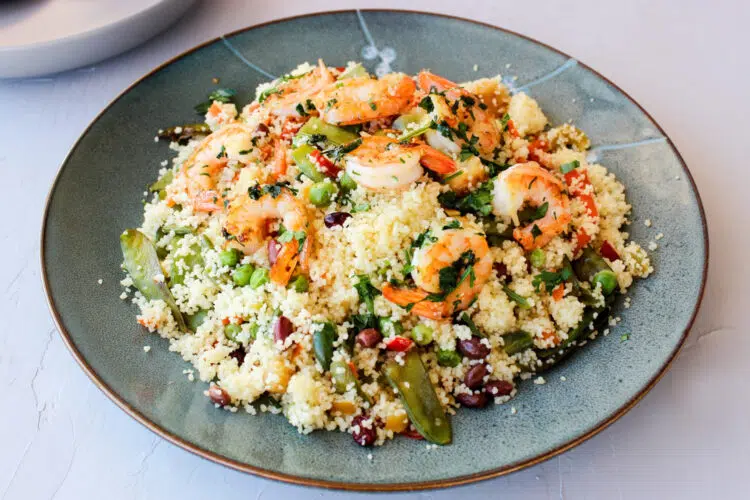Eating late at night is a controversial subject. As a veteran personal trainer with more than 30 years of experience, I’ve heard all the arguments for and against eating before going to bed and can see the logic of both sides of the discussion.
On the one hand, the most important factor for weight loss and weight maintenance is your total food intake (1). If you consume more kilocalories than you need, you will gain fat. In contrast, if you eat less and create a kilocalorie deficit, your body will burn fat to make up for the energy shortfall.
With that in mind, it would be easy to conclude that meal timing is not all that important provided you do not exceed your daily kilocalorie needs.
However, anecdotal and some scientific evidence suggests that late-night eating may hamper weight loss and could even lead to weight gain.
Since a large percentage of people eat and exercise specifically for weight control, it’s important to understand how meal timing may affect your results. In this article, I investigate the effects of late-night eating so you can decide when to have your final meal of the day.
Late Night Eating and Weight Gain: The Theory
Ask most people why you should avoid eating late at night and they’ll tell you it’s because your metabolism slows down while you sleep. Your metabolism or, more accurately, your basal metabolic rate (BMR), is the amount of energy your body uses in 24 hours.
Your metabolic rate fluctuates throughout the day. Sometimes, such as after exercise, it “runs hot,” and your energy expenditure increases. However, at other times it slows down, such as while you are relaxing in front of the TV. It also slows significantly while you sleep.
Because of this, people who want to lose weight often avoid eating after, for example, 8 pm, while others blame late-night eating for their weight gain.
Some research supports the link between late-night eating and weight gain. According to one study, people who tend to eat their largest meal at the end of the day are at greater risk of developing obesity than those who eat the bulk of their food earlier (2). However, not all research supports this notion. For example, another study involving more than 1600 children found no connection between eating after 8 pm and weight gain (3).
So, from a scientific perspective, there is no definitive proof that late-night eating causes weight gain. Some studies support the idea that eating before going to bed promotes fat gain while others fail to prove any such link.
However, while the research is inconclusive, some people do indeed find that late-night eating can cause weight gain.
How and why does this happen? Check out the next section and find out!
Late Night Eating and Weight Gain: The Reality
So, why do some late-night eaters tend to gain weight more easily? Let’s discuss!
The REAL Reasons That Late-Night Eating Causes Weight Gain
The most likely reason that late-night eaters gain weight is their tendency to consume more kilocalories overall. Studies reveal that people who eat late at night eat larger meals than those who have their last meal of the day earlier (5).
Research also suggests that late-night eaters consume an average of 500 kilocalories more than those who eat most of their meals during the daytime (6). Given that 500 kilocalories is the recommended daily energy deficit for weight loss, this more than explains why some late-night eaters gain weight or are unable to drop those unwanted pounds.
While it’s impossible to say exactly why this happens, I suspect it’s because willpower is often lower toward the end of the day, making it difficult to say no to big meals, second servings, and desserts compared to earlier in the day.
From a metabolic perspective, large late-night meals can also adversely affect sleep quality and duration, which can make it harder to lose weight (7). Too little sleep has been shown to increase hunger while decreasing insulin sensitivity, creating a perfect environment for fat storage and weight gain.
Related: The Importance of Sleep for Building Muscle and Losing Fat
The Alcohol Connection
Drinking alcohol may also contribute to nighttime weight gain. Many people enjoy an alcoholic beverage or two with their late dinner. Unfortunately, alcohol is another source of unwanted kilocalories. It also disrupts fat metabolism and can lower inhibitions, making it harder to exercise your willpower and control your appetite.
Unplanned Snacks
It’s not just late dinners that can lead to overeating and weight gain. A lot of people habitually consume unplanned snacks on their way to bed or eat extra food while they’re chilling on the couch watching Netflix.
Again, it’s not the timing of these mini-meals that’s the problem but the surplus kilocalories they contain. They’d interfere with fat loss even if you consumed them earlier in the day.
In summary, it’s not the time of your evening meal that matters but how much you eat. Eating late at night often leads to consuming more food than you need and may interfere with sleep. It’s these factors that cause weight gain, rather than the specific time that you eat your final meal of the day.
How to Eat Late at Night and Not Gain Weight or Interfere with Weight Loss
Eating your last meal of the day a little earlier may help you avoid weight gain or speed up weight loss. However, this is not because food eaten after, e.g., 8 pm, is automatically stored as fat. Rather, eating late can result in consuming extra kilocalories and may stop you from getting a good night’s sleep.
So, with that in mind, many people can benefit from not eating too late.
That said, I know first-hand that eating early is not always practical. Long workdays, hitting the gym after work, and lengthy commutes mean that some people don’t get home until well after traditional dinner times. Some cultures and countries also tend to eat their last meals later.
The good news is there are several things you can do that will make late-night eating less impactful and less likely to cause weight gain.
Prep Your Evening Meal in Advance
Cooking a healthy meal when you are tired and your willpower is low can be a challenge. Instead of sticking to your healthy diet, it’s easier to just grab a pizza (extra-large please!) and satisfy your hunger in double-quick time.
Prepping your evening meal in advance means you won’t have to wait long to eat and will be less tempted to fill up on junk food. Prep your evening meal as you make your breakfast or, more conveniently, during your downtime at the weekend.
Related: The ONLY $100 You Need to Spend on Meal Prep Essentials to Cook Healthy, Delicious Meals
Make Your Home a Cheat-Free Zone
Even if you have unbreakable willpower during the day, many people find their determination vanishes once the sun goes down. Treats and snacks that were easy to ignore during the day become irresistible at night.
Avoid late-night dietary slip-ups by making your home a cheat-free zone. After all, if you don’t have any cookies in your cupboards, you can’t eat them, right?
That’s not to say you have to give up treats altogether, and most sustainable eating plans include some tasty snacks. However, avoid storing treats at home, and only buy them on the day you’re going to eat them.
Have a Late-Afternoon Snack
Reduce the temptation to eat a massive late evening meal by having a healthy snack during the latter part of the afternoon. This means you won’t be ravenous when you finally sit down to dinner and will be less likely to overeat.
Good options include:
- Veggies and hummus
- Greek yogurt
- Beef or turkey jerky
- Hard-boiled eggs
- Cottage cheese
- Nuts and seeds
- Protein bar
Build Your Evening Meal Around Protein and Fibrous Vegetables
Limit the impact of late-night eating by reducing your intake of refined carbohydrates and building your meals around lean protein and fibrous vegetables. Such meals are satiating yet low in kilocalories and won’t spike your blood glucose excessively just before you go to bed.
In addition, eating protein and veggies before sleep may enhance muscle protein synthesis, leading to a more rapid recovery from exercise.
Related: Arnold Schwarzenegger Explains How to Time ‘Pre-Sleep Protein’ for Muscle Growth and Strength
Good options include:
Grilled Chicken and Steamed Broccoli
- Ingredients: Chicken breast, broccoli, olive oil, garlic, salt, and pepper.
- Instructions: Season the chicken breast with olive oil, garlic, salt, and pepper. Grill until cooked through. Steam the broccoli and season with a bit of salt and pepper.
Turkey and Spinach Stir-Fry
- Ingredients: Ground turkey, spinach, olive oil, garlic, soy sauce, and sesame seeds.
- Instructions: Heat olive oil in a pan, add garlic, and cook ground turkey until browned. Add spinach and soy sauce, and stir-fry until spinach is wilted. Sprinkle with sesame seeds before serving.
Baked Salmon with Asparagus
- Ingredients: Salmon fillet, asparagus, olive oil, lemon, salt, and pepper.
- Instructions: Season the salmon with olive oil, lemon, salt, and pepper. Bake in the oven at 375°F (190°C) for about 20 minutes. Toss asparagus in olive oil, salt, and pepper, and roast in the oven until tender.
Tofu and Mixed Veggie Stir-Fry
- Ingredients: Firm tofu, bell peppers, zucchini, carrots, soy sauce, ginger, and garlic.
- Instructions: Cut tofu into cubes and sauté in a pan until golden brown. Add sliced bell peppers, zucchini, and carrots. Stir-fry with soy sauce, ginger, and garlic until vegetables are tender.
Shrimp and Cauliflower Rice
- Ingredients: Shrimp, cauliflower rice, olive oil, garlic, parsley, lemon, salt, and pepper.
- Instructions: Sauté shrimp in olive oil with garlic until cooked. Add cauliflower rice and cook until tender. Season with parsley, lemon, salt, and pepper.
Conclusion
Eating late won’t automatically lead to weight gain, and it doesn’t have to interfere with weight loss, either. What you eat is far more important than when you eat it, and the kilocalorie value of your food doesn’t change when the sun goes down.
That said, there are still some downsides to late-night eating, but these are mostly practical rather than metabolic. For example, late-night eaters tend to consume more calories than those who eat earlier.
So, there is no need to worry about the time of your last meal, but you should pay attention to what it contains and how much you eat. However, that advice applies to all your meals, and not just those you eat after 8 pm.
References
Fitness Volt is committed to providing our readers with science-based information. We use only credible and peer-reviewed sources to support the information we share in our articles.
- Esquivel MK. Energy Balance Dynamics: Exercise, Appetite, Diet, and Weight Control. Am J Lifestyle Med. 2021 Feb 4;15(3):220-223. doi: 10.1177/1559827621989285. PMID: 34025309; PMCID: PMC8120623.
- Lopez-Minguez J, Gómez-Abellán P, Garaulet M. Timing of Breakfast, Lunch, and Dinner. Effects on Obesity and Metabolic Risk. Nutrients. 2019 Nov 1;11(11):2624. doi: 10.3390/nu11112624. PMID: 31684003; PMCID: PMC6893547.
- Coulthard JD, Pot GK. The timing of the evening meal: how is this associated with weight status in UK children? Br J Nutr. 2016 May;115(9):1616-22. doi: 10.1017/S0007114516000635. Epub 2016 Mar 15. PMID: 26975796.
- Hatori M, Vollmers C, Zarrinpar A, DiTacchio L, Bushong EA, Gill S, Leblanc M, Chaix A, Joens M, Fitzpatrick JA, Ellisman MH, Panda S. Time-restricted feeding without reducing caloric intake prevents metabolic diseases in mice fed a high-fat diet. Cell Metab. 2012 Jun 6;15(6):848-60. doi: 10.1016/j.cmet.2012.04.019. Epub 2012 May 17. PMID: 22608008; PMCID: PMC3491655.
- Reid KJ, Baron KG, Zee PC. Meal timing influences daily caloric intake in healthy adults. Nutr Res. 2014 Nov;34(11):930-5. doi: 10.1016/j.nutres.2014.09.010. Epub 2014 Oct 2. PMID: 25439026; PMCID: PMC4794259.
- Gluck ME, Venti CA, Salbe AD, Krakoff J. Nighttime eating: commonly observed and related to weight gain in an inpatient food intake study. Am J Clin Nutr. 2008 Oct;88(4):900-5. doi: 10.1093/ajcn/88.4.900. PMID: 18842774; PMCID: PMC6322536.
- Chaput JP, Després JP, Bouchard C, Tremblay A. The association between sleep duration and weight gain in adults: a 6-year prospective study from the Quebec Family Study. Sleep. 2008 Apr;31(4):517-23. doi: 10.1093/sleep/31.4.517. PMID: 18457239; PMCID: PMC2279744.
















Does age factor into the protein/fiber eating plan? I’m female, 75 yrs, 5’ tall, 140 lbs and fairly active. I do enjoy a glass of wine. I love protein and.veggies. Menopause is kicking my butt and I still have hot flashes so on hormone patch. Follow plan, just eat less?
Hi there and thanks for your question!
Unfortunately menopause and the hormonal changes it brings can exacerbate weight gain. I recommend you adhere to the information in this article but remember your body may not cooperate they way you want it to. Make sure you maintain muscle mass through regular strength training, and, if possible, get active later in the day so your insulin sensitivity is elevated when dinner time comes around. Even a short walk or a few bodyweight squats can help raise insulin sensitivity before meals.
If you are still gaining or struggling to lose weight, the reason can only be an energy imbalance so you’ll need to eat a little less or exercise a bit more. That said, you must avoid starving yourself or over-exercising as that’s no-one’s idea of fun (and can make things worse).
I’d also do some reading on menopause and exercise/weight loss. While it probably won’t provide you with solutions, it may help explain why menopause makes weight loss more difficult. Working with your doctor is a must as they may be able to adjust your HRT dosages so you feel as good as possible during this difficult time.
I hope that helps!